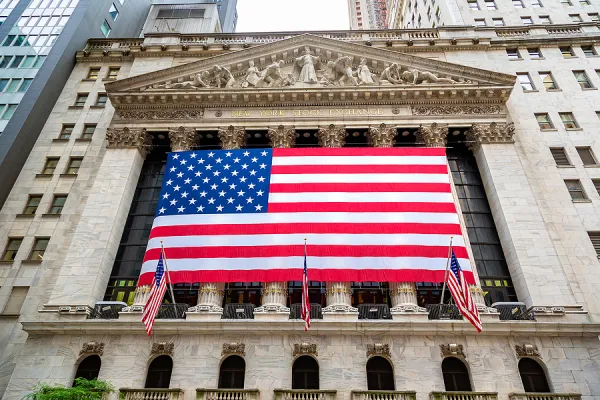It used to be a straight shot from what the markets did to Wall Street and asset management paychecks. This is the first year those two have diverged significantly, according to Johnson Associates’ yearly analysis of incentive compensation.
The annual study expects that year-end incentive compensation for employees at traditional asset management firms, including in fixed income, will be down as much as 5 percent.
For the financial industry as a whole — including investment banking, commercial banking, asset management and other sectors — the Johnson Associates compensation analysis finds year-end incentives, which include cash bonuses and equity awards, will fall on average by 5 percent compared to last year. Year-end payments have increased throughout the industry since 2016.
Compensation for asset managers has historically been closely aligned with the performance of the markets.
“If you look from January 1st, the markets look terrific,” said Alan Johnson, the founder and managing director of the compensation and consulting firm, in an interview. “So lower comp will be surprising to the industry. They’ll say, ‘Hey, it’s been a great year!’ But, no, not really. It depends on the time frame. if you include the fourth quarter [of 2018], it doesn’t look so good,” he added.
Johnson said the industry is decoupling from traditional measures of success anyway, such as assets under management.
[II Deep Dive: Just a Quarter of Asset Managers Growing Profitably, Study Finds]
“This is the first year I’ve noticed a real separation between what’s happening in the markets and the revenues that asset managers are getting,” he said. Historically, if the market was up 10 percent, pay would be up in line with that. And, if not, you’d get coal in your stocking,” he said.
There’s been talk of challenges for years, now it’s here, Johnson explained. With the shift from active to passive, some assets are really profitable and some aren’t.
But things look different for private equity and hedge fund staffers. They’re not getting coal.
Incentive pay for hedge funds and private equity employees is expected to be up 0 to five percent from last year, according to the survey.
Johnson expected higher comp for private equity, given the large sums of money that funds have raised in the last few years. But hedge funds have been consistently criticized for high fees and poor performance. A rise in incentive comp for hedge funds from last year somewhat surprised Johnson.
Despite the pressure, he explained, hedge funds have done a pretty good job of retaining assets and even maintaining high fee levels. Johnson says institutions have stayed with hedge funds in part because bonds don’t yield anything in the low rate environment; international equities have failed to perform; and many have a lot of exposure to domestic equities.
“There are just so many places to put your money. Maybe you’re not excited about hedge funds, but you keep your money there, at least for now,” Johnson said.
The gap between private equity and hedge funds, though, is growing. According to Johnson, since about 2016, private equity staffers’ incentive comp has grown by about 20 percent. Hedge funds has grown by about by about 5 percent in the same time period.
Johnson Associates expects that overall incentive compensation in 2020 will be down as much as five percent as well.
The compensation study also found that incentive comp in high-net-worth management will be flat. Revenue in in the sector grew slightly, but firms also spent more on technology, according to Johnson Associates.
On the investment banking side, Johnson Associates reported that equities sales and trading professionals will be the hardest hit, with year-end payments expected to decline by 10 to 15 percent, compared to 2018. Investment banking underwriters, staff and managers will likely see their incentive compensation to fall as much as 10 percent.
Traditional asset managers will also have to deal with the compensation spread between employees working in their traditional business and those who are in their growing alternatives divisions.
“People in alts get paid differently. For many years, their alternatives businesses were small so it wasn’t an issue. But now you’re getting ‘blues’ and ‘reds’ of meaningful size in the same firm. It matters,” he said.







